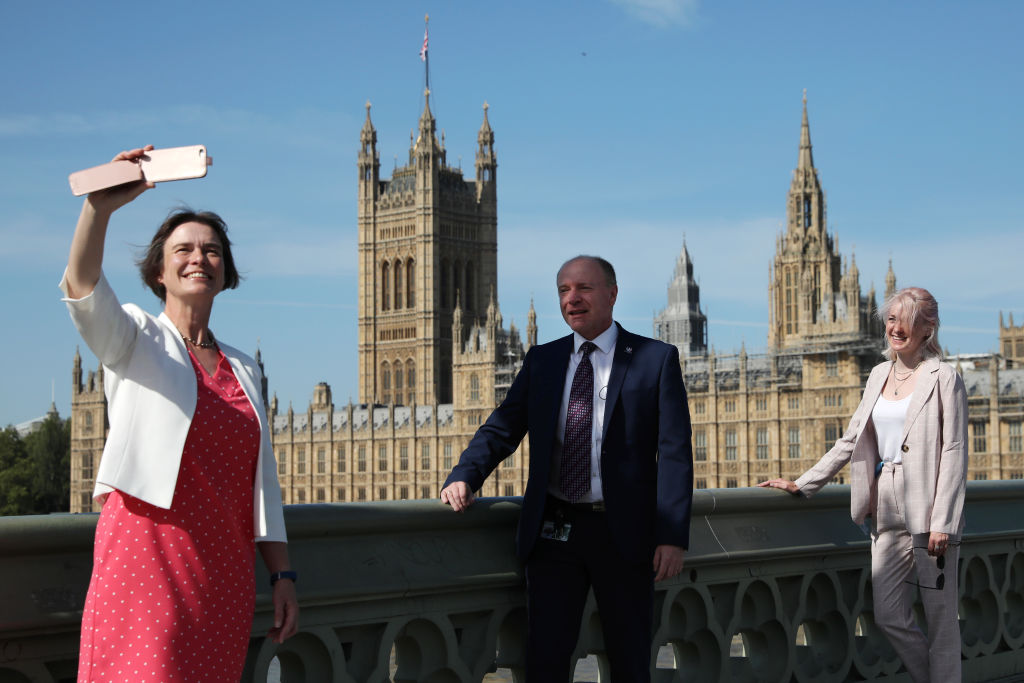Politicians need to find a balance with social media like TikTok, not run from it

THE UK Parliamentary account on TikTok was unceremoniously banned from the Westminster estate last week after a group of MPs alerted the Speaker of the House to the account’s existence. While concerns about national security and data access in China are understandable, an outright closure of such an important route to engaging people in politics is a tremendous, missed opportunity.
Chinese-owned TikTok has struggled to allay national security concerns across the west – the US Government has recently forced TikTok to route 100 per cent of US data through cloud servers in the US, and TikTok was banned entirely in India in 2020. In the UK, taking a hard-line approach on Chinese-owned social media may be politically expedient for some MPs – not to mention for TikTok’s competitors – but blanket restrictions ignore the culturally dominant and agenda-defining position TikTok now holds. It’s as popular a news source as Sky News’ website and app, and especially connects with young people.
As well as viral dances that MPs may have feared Lindsay Hoyle was about to introduce to the Commons, TikTok is stacked full of educational content. TikTok uses its powerful algorithm to intersperse serious content with the banal. It’s the 21st century equivalent of what the BBC has always done in its schedule, “hammocking” educational and informative programmes around entertainment (that’s why there’s often a documentary on after Eastenders). This mix makes it the perfect platform for parliament to provide political education, without seeming parsimonious and irrelevant.
MPs have already started becoming “famous” on TikTok, especially among the younger cohort of politicians. The Labour MP Zarah Sultana has almost 400,000 followers, 100,000 more followers than on twitter. Tory MP Dehenna Davison has tried to bill herself as the “TikTok MP”, though others have been more adept at using the platform, Luke Evans, for example, the Conservative MP has done video campaigns on body image, or explaining oddities about House of Commons’ traditions.
At the same time, Liz Truss has talked about further restrictions on government use of the platform, risking further entrenching the alienation young people feel with politics and politicians.
More importantly, it’s not simply an app politicians are missing out on, but a new mode of communication, and history proves those who master the newest routes to the public reap the electoral dividends. The idea of simply shunning an app which has such mass takeup among young Britons is a surefire way of failing to connect to them.
Indeed, TikTok may even be yesterday’s news with the rise of a new generation of app, BeReal, promising authenticity on social media.
BeReal has pitched itself as the anti-viral social media platform. Users are all pinged at once and given two minutes to record whatever’s happening at that moment. The novelty is that the picture you post is shot from both the rear and front-facing cameras. There is no way to hide what is real, and you can’t see what your friends have posted until you’ve uploaded. No lurking, no fake set-ups, and no filters. And while brands and MPs haven’t yet made their way to the platform yet, we’ve learnt enough about monetisation and the growth of social media over the past two decades to confidently say it’s only a matter of time.
BeReal is attempting to herald a new type of social media defined as more authentic, unvarnished, and importantly against the idea that what you’re seeing is somehow manipulated deliberately to appeal to you.
This is the same kind of authenticity politicians go to great lengths to display to voters – albeit a curated version of it. The word often inspires fear in politicians, who remember all too well incidents like Ed Miliband’s bacon sandwich bungle. But the promise of the BeReal generation is actually the opposite – to re-engage people with substance, to show integrity, hard work and a well-thought through, compelling policy agenda over aesthetics.
Stanley Baldwin mastered the radio with his “fireside talks” in the 1920s, JFK used his charisma to win votes over the television in a famous debate with Nixon in 1960, New Labour mastered 24-hour news and Trump – for better or worse – once ruled twitter. The next generation of politicians ignore TikTok and BeReal at their peril.
